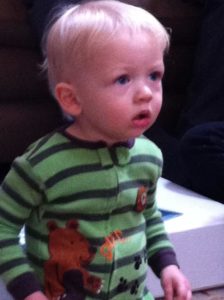Ultimately it must be the individual disposition which decides whether the child belongs to this or that type despite the constancy of external conditions . . . Under abnormal conditions, (i.e. when mother’s attitude is extreme), a similar attitude can be forced on the child too, thus violating their individual disposition. — C. G. Jung
In the previous article, Jungian analyst and GCI faculty member, Vanessa Prins, introduced the theme for the next series of articles: life-long personal development. With this article, she offers the first of those articles, looking at childhood.
As always, we welcome your comments and suggestions.
Childhood
 The goal of the first half of life might be stated: “Follow your bliss.” Following one’s natural enthusiasm leads to a strong and differentiated ego.
The goal of the first half of life might be stated: “Follow your bliss.” Following one’s natural enthusiasm leads to a strong and differentiated ego.
The introverted/extraverted ego orientations can often be observed in small children, even babies. Parents might say about a child, “He is happy and sociable, and before you know it, he is out there and exploring things!” Yet, about another child in the same family they might say, “When he comes to a new place he is always very quiet, and just observes everything. He needs time to settle in.”
Jung saw these preferences as something inborn, specific to the child, and not brought about by education: “The fact that children often exhibit a typical attitude, quite unmistakably even in their earliest years, forces us to assume that it cannot be the struggle for existence . . . that determines a particular attitude” (CW 6, par. 560).
P. Kagan’s research on children’s temperaments supports this view. He observed four-month-old babies and saw differences in the way they coped with new situations (high/low reactivity) which proved predictive of their temperaments as adolescents.
Noticing differences in children’s temperaments can be very important for the well being of the children. Whereas some children might flourish with a lot of activity and social contacts, others might be challenged by the interaction. Unless parents and teachers are well informed, introverted children might be seen as “problematic”–shy, withdrawn, asocial, or even somewhat autistic!
Fortunately, much has been done in recent years to help inform parents and educators about introverted children with books like The Hidden Gift of the Introverted Child by M.O. Lanay, or Quiet by S. Cain.
Parents need to listen to their children, to be aware of their natural orientations, and to refrain from attempting to force them to fit into their preconceived ideas about who they should become. Each child is different. Knowledge of the types can help parents nurture their children in growing naturally into unique adults!
